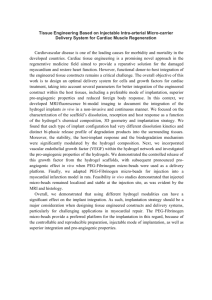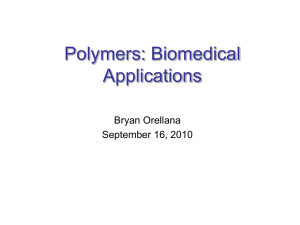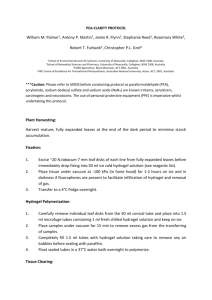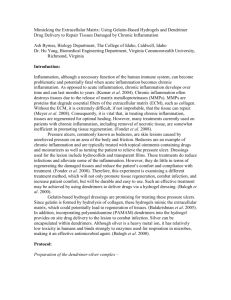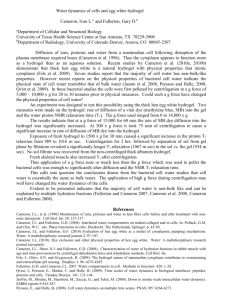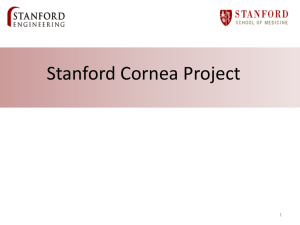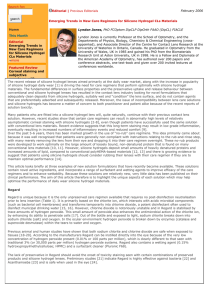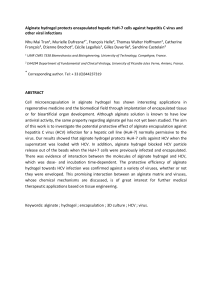Contact lenses H tier mark scheme
advertisement
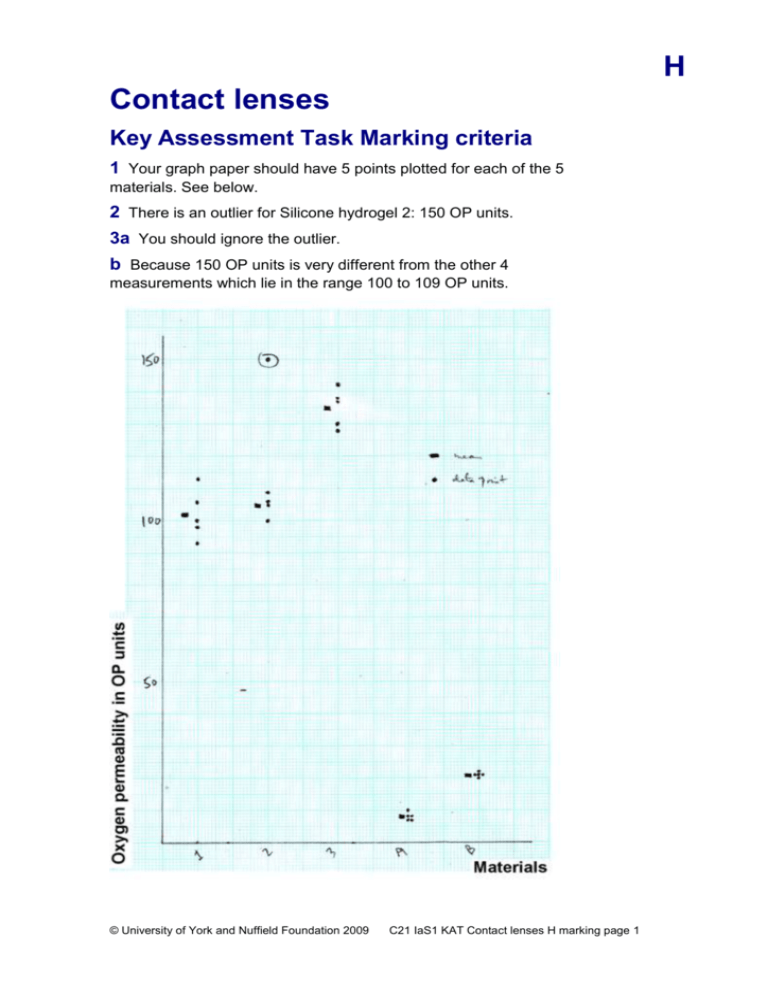
H Contact lenses Key Assessment Task Marking criteria 1 Your graph paper should have 5 points plotted for each of the 5 materials. See below. 2 There is an outlier for Silicone hydrogel 2: 150 OP units. 3a You should ignore the outlier. b Because 150 OP units is very different from the other 4 measurements which lie in the range 100 to 109 OP units. © University of York and Nuffield Foundation 2009 C21 IaS1 KAT Contact lenses H marking page 1 H 4 and 6 Results Material Oxygen permeability /OP units Mean /OP units Range / OP units Silicone hydrogel 1 98 93 113 106 100 102 93 to 113 Silicone hydrogel 2 105 outlier 106 100 109 105 100 to 109 Silicone hydrogel 3 138 142 128 137 130 135 128 to 142 Hydrogel A 7 8 10 8 7 8 7 to 10 Hydrogel B 21 21 22 21 20 21 20 to 22 7 You should have given one of the following reasons: There may be a slight difference in the samples – for example in their thickness - which would change the measured value of the oxygen permeability. There might be a slight difference in the polymer composition which would change the true value of the oxygen permeability. The measuring equipment or the way it is used may give values which are slightly different from the true value. 8 The data show that silicone hydrogel lenses are more oxygen permeable than hydrogel lenses. For example the most oxygen permeable hydrogel, Hydrogel B, has an oxygen permeability of only 21 OP units. But the least oxygen permeable silicone hydrogel, Silicone hydrogel 1, has oxygen permeability 102 OP units. (You could have chosen other examples to answer this question, but these two are the best to choose, as they are the hydrogel with the highest value and the silicone hydrogel with the lowest value.) © University of York and Nuffield Foundation 2009 C21 IaS1 KAT Contact lenses H marking page 2 H 9 Reason Because the material itself might vary so different samples have different oxygen permeabilities. Because the thickness of the material might be different and this would affect the oxygen permeability. Because there is no true value for the oxygen permeability of a sample of material. Because they were poor scientists – they would have got exactly the true value if they were careful enough. Because the measuring equipment, or the way it was used, might give a value that is different from the true value. 10a Hydrogel B b Because the range of values in the set is smaller. 11a There is no real difference between silicone hydrogel 1 and silicone hydrogel 2 because: • the mean of the measurements for silicone hydrogel 1 is inside the range of the measurements for silicone hydrogel 2 • the mean of the measurements for silicone hydrogel 2 is inside the range of the measurements for silicone hydrogel 1. 11b There is a real difference between silicone hydrogel 1 and silicone hydrogel 3 because: • the mean of the measurements for silicone hydrogel 1 is below the range of the measurements for silicone hydrogel 3 • the mean of the measurements for silicone hydrogel 3 is above the range of the measurements for silicone hydrogel 1. 11c There is a real difference between hydrogel A and hydrogel B because the mean of the measurements for hydrogel A is below the range of the measurements for hydrogel B, and the mean of the measurements for Hydrogel B is above the range of the measurements for Hydrogel A. NOW look again at the learning outcomes for this activity. Which learning outcomes have you achieved? © University of York and Nuffield Foundation 2009 C21 IaS1 KAT Contact lenses H marking page 3 H Which learning outcomes can you improve? © University of York and Nuffield Foundation 2009 C21 IaS1 KAT Contact lenses H marking page 4
